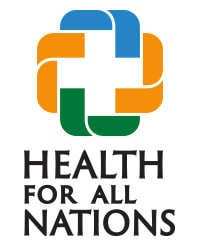|
With this posting I come to the third in the series delving into the vision360 video series entitled “Evangelical Tourism.” Again this week we don’t need to listen very long to find another important topic to address relating to the challenges faced in being zealous to do good but not having sufficient knowledge about how to do good without causing harm.
In the opening statement made by the team leader she explains how the team will be breaking up into various smaller groups and that one of the groups will be “building two homes FOR families.” Unfortunately we don’t know more about the details of how this gets done in this particular case but in my experience this often means that the team has folks volunteering to be involved in construction projects but who may have little if any experience doing this type of work. You can just imagine if someone were building a home in the US and a group was visiting from Guatemala and wanted to help with the construction. What would you, as the eventual homeowner, want them to be doing? If one of the visitors stated he/she had experience in construction you would still want an expert you trust to assess this individuals abilities before giving them the responsibility of working on your roof for instance. So why should it be any different in this case? If we are going to send our son’s and daughters (and in this case also a mom who was spending her first time away from her 18 month old baby) to work cross-culturally shouldn’t they be asked to be involved in something they are gifted and trained to do within the context of what the locals identify is a need they cannot fill themselves? Doing FOR the people something they can do for themselves only creates unhealthy dependency. (see Fikkert’s “When Helping Hurts” and Glenn Schwartz’s work “When Charity Destroys Dignity.”) But it sure makes us feel good. These same principles apply to health related missions activities as well. This group does have included in their agenda a time for doing a dental clinic. I’m not sure if they also plan on doing medically related work as well but many such teams do. If in country partnerships have been well developed then there should exist the knowledge, having been imparted to the visiting team by the local partner, as to what health related activities are most needed in the communities to be visited. What cannot be provided locally by local health care providers? And if there are significant deficits in healthcare provision why is that the case and what can the visiting team do to correct those deficiencies? The knowledge gained can then be used to implement the most useful strategy to bring about the changes necessary in country so that local capacity is developed and eventually the team no longer is needed to provide services that the locals should be providing for their own people. This will contribute to a much greater chance for sustainability in any project engaged in between resource rich groups and those who are not yet resource rich.
0 Comments
Leave a Reply. |
AuthorThis is the blog for the Best Practices in Global Health Mission division of the Center for the Study of Health in Mission. It is a space for all who are interested in sharing opinions, ideas and best practices having to do with Christ centered health related ministry. Archives
April 2020
Categories |

© 2024 Health for All Nations All Rights Reserved In Partnership with Frontier Ventures and the Ralph D. Winter Launch Lab |
ABOUT The mission of Health for All Nations is to engage the global Christian community in the exploration and application of biblical revelation, scientific evidence, and cumulative experience as they relate to health and wholeness. Our mission includes assisting the global Christian church in fulfilling its mandate to promote health and healing among the nations. Learn More |
Proudly powered by Weebly


 RSS Feed
RSS Feed
